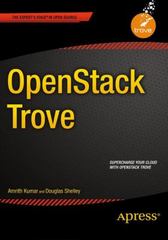Question
please rewrite the code with answers in visual studio code the code in the image is given below without indentation. // Project 0: Inheritance in

please rewrite the code with answers in visual studio code
the code in the image is given below without indentation.
// Project 0: Inheritance in C++, Parsing/ASTs, S-expressions, Polish notation
// Write a library for converting between (Polish + S-expr) notation and an AST, and for evaluating these ASTs recursively.
// This notation is normal, binary-operator prefix (Polish) notation, but allowing for parentheses to indicate a k-ary use of an operation. Parse these using the normal precedence and associativity, into (strictly) binary operations and literals (natural numbers).
// You must support +, -, *, and ^ operators and for each a binary usage where parentheses are optional, and k-ary usage with parentheses required and some caveats below.
// These are some examples of equivalent inputs:
// + 1 25 => (+ 1 25)
// - + 3 2 1 => (- (+ 3 2) 1)
// (- 3 2 1) => (- (- 3 2) 1)
// (- 2) => (- 0 2)
// (+ 3) => 3
// Treat contiguous sequences of digits as a single natural-number token, but all others as single-character symbol tokens.
// Parse errors: return null from the parseExp function
// e.g.,
// (* 4) error, * and ^ cannot be used as unary operators
// (^ 5) ditto
// () error, parens cannot go alone
// (+) ditto, operators must have 1 or more operands in all cases
// x ditto, only numeric 0-9 characters, whitespace, (, ), +, -, *, ^, are valid input characters
// Ignore runtime errors, return any integer
// We'll include some STL libraries. We don't need/want any other libraries.
#include
#include
#include
// Exp is an purely abstract type (or Interface) for Expressions
class Exp
{
public:
virtual ~Exp() { }
virtual void print() = 0;
virtual int eval() = 0;
// Must parse an expression from std::cin and return a pointer to an AST, or null to indicate failure
static Exp* parseExp();
};
// PlusExp is a concrete type for a (+ ... ...) binary-operation subexpression
class PlusExp : public Exp
{
private:
Exp* lhs;
Exp* rhs;
public:
PlusExp(Exp* _lhs, Exp* _rhs) : lhs(_lhs), rhs(_rhs)
{
}
virtual ~PlusExp()
{
delete lhs;
delete rhs;
}
virtual void print()
{
// Print as an s-expr
std::cout
std::cout
lhs->print();
std::cout
rhs->print();
std::cout
}
virtual int eval()
{
return lhs->eval() + rhs->eval();
}
};
// LitExp is a concrete type for a (+ ... ...) binary-operation subexpression
class LitExp : public Exp
{
private:
int nat; // A literal is a small natural number, but we'll use int so (-) is closed over this type.
public:
LitExp(int _n) : nat(_n)
{
}
virtual ~LitExp()
{
}
virtual void print()
{
std::cout
}
virtual int eval()
{
return nat;
}
};
// A static function that builds an expression from Polish notation read from STDIN
Exp* Exp::parseExp()
{
std::string token;
std::cin >> token;
if (token == "+")
{
Exp* lhs = parseExp();
Exp* rhs = parseExp();
if (lhs && rhs)
return new PlusExp(lhs, rhs);
if (lhs) delete lhs;
if (rhs) delete rhs;
return 0;
}
else try
{
int n = stoi(token);;
return new LitExp(n);
}
catch (...)
{
// std::cout
return 0; // Return null to indicate stoi() failure
}
}
Step by Step Solution
There are 3 Steps involved in it
Step: 1

Get Instant Access to Expert-Tailored Solutions
See step-by-step solutions with expert insights and AI powered tools for academic success
Step: 2

Step: 3

Ace Your Homework with AI
Get the answers you need in no time with our AI-driven, step-by-step assistance
Get Started


